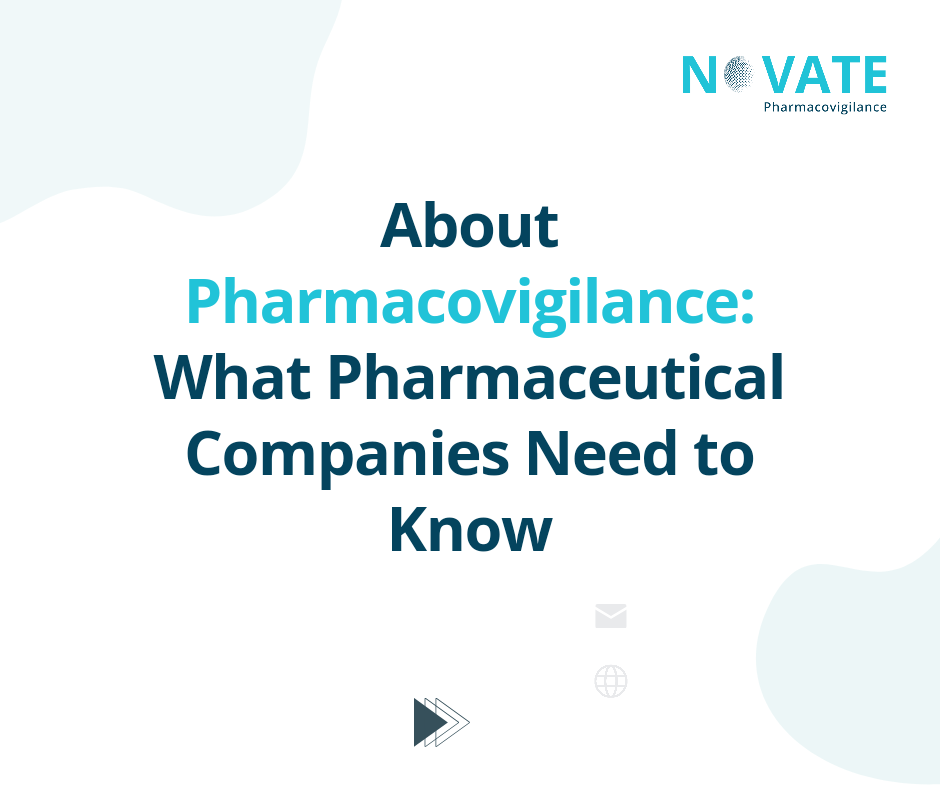
Introduction
Ensuring the safety of patients is a paramount responsibility for any pharmaceutical company. Pharmacovigilance (PV), the science of monitoring and evaluating the safety of medicines, plays a crucial role in achieving this goal. A robust pharmacovigilance system is essential to safeguarding public health, fulfilling regulatory obligations, and protecting a pharmaceutical company's reputation. In this article, we'll dive into the fundamentals of pharmacovigilance and outline what pharmaceutical companies need to know to ensure effective PV systems.
What is Pharmacovigilance?
The World Health Organization (WHO) defines pharmacovigilance as "the science and activities relating to the detection, assessment, understanding, and prevention of adverse effects or any other drug-related problem." PV extends throughout the entire lifecycle of a drug – from pre-clinical development to post-marketing surveillance.
Key Components of Pharmacovigilance
- Adverse Event (AE) Reporting: Pharmaceutical companies are obligated to collect and report suspected adverse events associated with their products. These reports come from various sources, including healthcare professionals, patients, and clinical trials.
- Signal Detection: Signal detection is the process of analyzing large datasets of safety information to identify potential new safety concerns or changes in the known risk profile of a medicine.
- Risk Assessment and Management: When a potential safety issue is identified, pharmaceutical companies must thoroughly assess its severity, likelihood, and potential impact on patients. Based on this assessment, they develop and implement risk management plans to minimize risks and protect patient safety.
- Communication and Transparency: Clear and timely communication of safety information to healthcare professionals, patients, and regulatory authorities is essential to support informed decision-making.
Why is Pharmacovigilance Important for Pharmaceutical Companies?
- Patient Safety: The primary goal of PV is to protect patients from the unintended harmful effects of medicines. By proactively monitoring safety, companies can identify potential risks early and take appropriate actions to mitigate them.
- Regulatory Compliance: Pharmaceutical companies are legally mandated to comply with PV regulations set forth by regulatory bodies like the National Agency for Food & Drug Administration and Control (NAFDAC) in Nigeria and other health agencies globally. Proper PV practices are key to fulfilling these obligations and avoiding penalties.
- Public Trust: Demonstrating a commitment to patient safety through transparent PV practices builds trust with patients, healthcare providers, and the public. This strengthens a company's reputation and supports long-term success.
- Informed Decision-Making: PV data provides valuable insights into the safety profiles of medicines. This data helps pharmaceutical businesses and regulators make informed decisions about drug development, risk-benefit assessments, and product labeling.
Key Challenges and Best Practices for Effective Pharmacovigilance
- Increasing Data Volume: Pharmaceutical companies need effective systems to manage the growing volume of safety data from sources like clinical trials, real-world data, and social media. Advanced analytics and data mining techniques become crucial for efficient data handling.
- Global Regulations: Navigating the complex and ever-changing landscape of global PV regulations requires specialized knowledge and constant vigilance. Partnering with experienced PV service providers can ensure compliance across different markets.
- Resource Constraints: Building and maintaining a robust in-house PV department can be resource-intensive. Outsourced solutions and strategic partnerships can offset costs while ensuring quality.
- Technology Adoption: Embracing the latest technologies for data collection, analysis, and reporting can significantly improve PV efficiency. Companies need to adopt the right technology solutions tailored to their specific needs.
Outsourcing Pharmacovigilance: A Viable Option
Pharmaceutical companies needing PV support often turn to outsourcing as a cost-effective and flexible solution. Specialized pharmacovigilance service providers offer a range of services, including:
- Case Processing and Reporting
- Signal Detection and Analysis
- Risk Management Planning
- Pharmacovigilance Audits and Inspections
- Qualified Person for Pharmacovigilance (QPPV)
Novate Pharmacovigilance Services: Your Trusted Partner
Novate Pharmacovigilance Services is a leading PV solutions provider committed to safeguarding patient safety and ensuring regulatory compliance for pharmaceutical companies.
